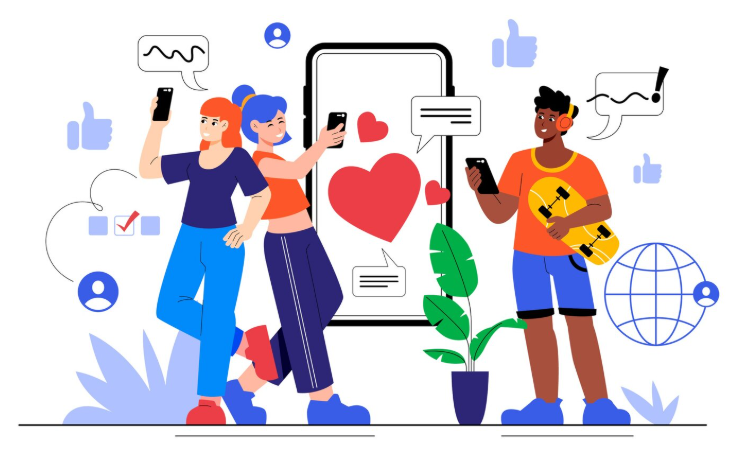By Nikolina Koulouri,
Over the past few years, the way we talk about how we feel and what is going on in our relationships has changed so much. For example, words that used to only belong in therapy rooms or psychology textbooks are now just normal things we say to our friends in our daily lives, so it is nothing but usual nowadays to hear someone say that they need to set boundaries, or that something is gaslighting in a totally casual conversation, and, in some ways, that is actually amazing because it means that we are more open and less scared to talk about mental health, but at the same time the more we throw these words around without really thinking about them, the easier it is for them to lose what they originally meant and turn into these quick labels that do not actually capture how complicated things really are in people’s minds.
I believe that a huge reason for this is just how much of our mental health “education” now comes from social media, because we are all spending much of our free time on TikTok or Instagram, on a daily basis. Sometimes, you may get videos on your feed from actual therapists who break things down in a responsible and scientific way, but a lot of the time it is just regular people making short, dramatic clips or posts that go viral because they’re super relatable and easy to agree with.

For a lot of people, learning these words is actually empowering, like if you grew up never hearing about boundaries and suddenly you learn what that even means, you might finally realize how often your needs were ignored or dismissed. Something similar happens with the word “trauma” because even if it gets overused over time, for some people it is the first time they have language for something that has been hurting them inside for years.
In my opinion, the most complex part is when these terms stop being about understanding and start being about judging, because it’s way easier to just call someone “toxic” than to explain why you feel a certain way for example in a relationship, or to accuse someone of “gaslighting” instead of actually talking through what happened and figuring out if it was intentional. Due to this, instead of opening a conversation you just kind of shut it down. Also, over time when we get too used to leaning on these phrases things can become harder, because everything starts sounding defensive and not willing to be solved but just putting labels. Wanting to protect my boundaries might be totally fair sometimes, but other times it’s just a way of avoiding the harder and more meaningful conversation about what those boundaries actually are, so without explaining and without listening, the other person might just feel like you put a label on them and walked away.

Social media in my opinion makes this case even worse, because the posts that go viral are the short, powerful ones that sound good and feel empowering, but do not leave room for the messy reality that most people live in, so you get advice to cut off anyone who disrespects your boundaries, which might sound perfect in theory, but in real life relationships it is not the same as it is pretty complicated, and not every uncomfortable moment means abuse or trauma. So, if therapy speech becomes just a quick way to justify your choices without reflecting on them and explaining them towards the person, it might keep you safe in the moment, but it will not necessarily help you grow or really understand other people or form new and meaningful relationships.
Finishing this article, I am definitely not saying we should stop using words referred to psychological terms because their meanings matter and they can literally be life changing when used wisely and in a proper way, but I think we have to remember that knowing the word for something does not mean you have solved it or even fully understood it, and not everything needs a clinical label to be real. So eventually, the way I see it, I think maybe these terms should be the start of a conversation to solve things, not the end of it.
References
- The Rise of Therapy-Speak. The New Yorker. Available here
- Why You Should Stay Away From Therapy Speak In Everyday Conversations. The Counseling Center. Available here




